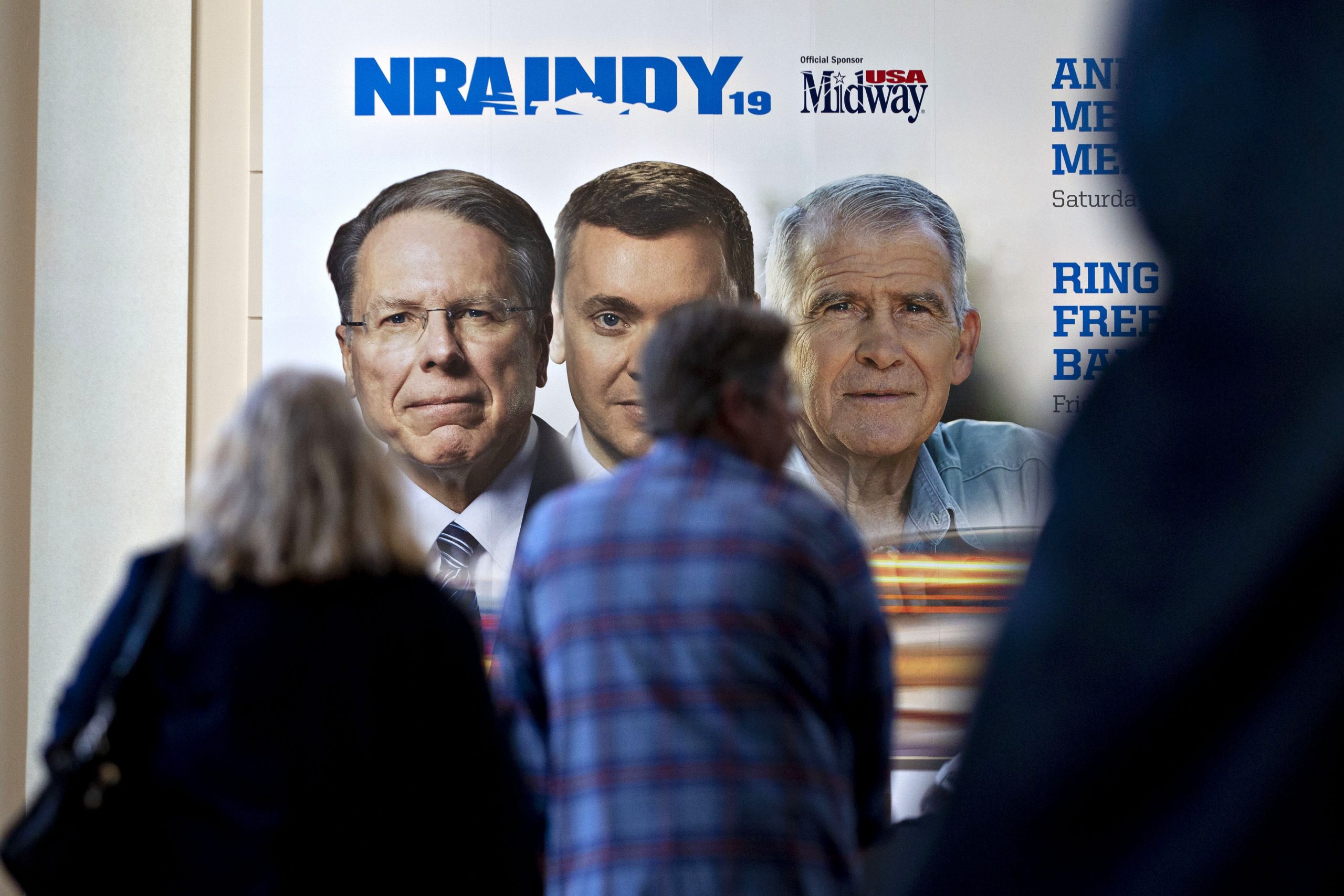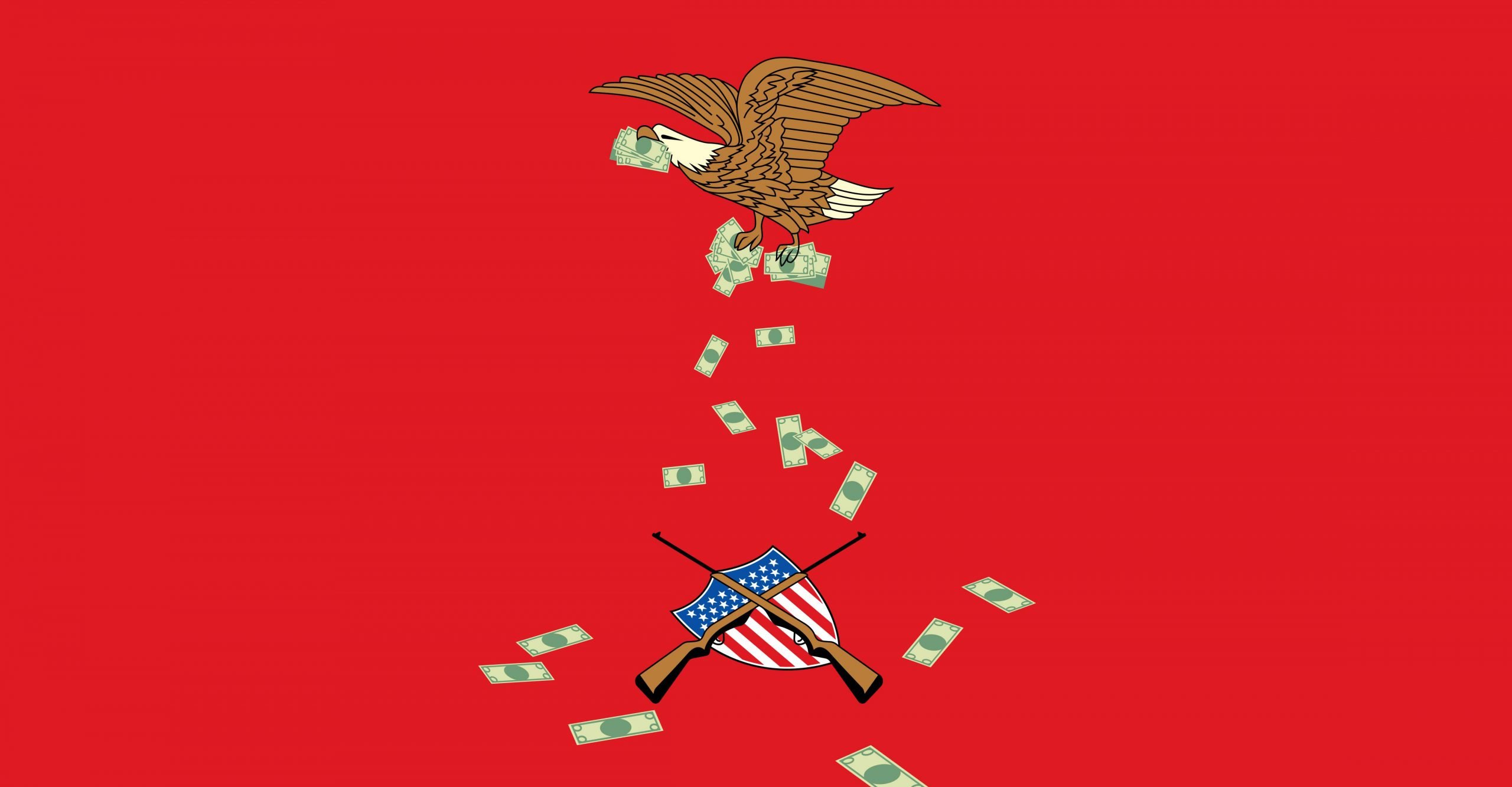A member of the National Rifle Association’s board of directors has disclosed new details about the re-election of chief executive Wayne LaPierre, which the organization had characterized as unanimous.
“The new slate of officers for the National Rifle Association was decided upon, and nominated by, the NRA Board of Directors nominating committee,” Allen West, the former congressman who was elected to his second term on the board, wrote on his personal website. “There were no nominations from the floor when these names were put forth.”
He continued: “With no opposing nominations, the vote was done by acclamation, not roll call vote. This is similar to passing a piece of legislation by voice vote.”
A vote by acclamation is not uncommon when a candidate is unopposed. But the NRA’s description of the vote as “unanimous” left many wondering whether each of the board’s 76 members had actually voiced their support for LaPierre.
The board re-elected LaPierre on April 29, during a marathon closed-door meeting in Indianapolis, where the group had just wrapped up its annual convention. The decision came as something of a surprise given growing calls for LaPierre’s resignation following accusations of financial misconduct and suspicious business dealings, and the revelation that the New York attorney general had launched an investigation into the NRA’s tax-exempt status.
In the days before the board meeting, West called for an investigation of the NRA’s spending practices. He told the Washington Free Beacon that the NRA should implement reforms including an internal auditing system, and in a separate interview with Tactical Rifleman, labeled the group “a cabal of cronyism.” West’s statements suggest that at least some board members harbored misgivings about LaPierre staying on as chief executive.
“As most of us expected, it wasn’t really a vote,” Rob Pincus, an NRA member and firearms trainer from New Jersey, said in a post on his Facebook page. “It was more Status Quo: the machine that has been built to support the current regime just did its thing… and the board members went along with it.”
Pincus was one of several NRA members who chided the group’s leadership for a lack of transparency during a fiery open meeting at the Indianapolis convention. The forum marked the climax of a turbulent week in which LaPierre accused the group’s then-president, Oliver North, of blackmail and threatening to disclose damaging information about the NRA’s financial state. North subsequently announced he was stepping down in a letter read aloud to members. Two days later, the board voted to replace North with Carolyn Meadows, a prominent Georgia Republican and longtime LaPierre supporter.
Another NRA board member, Timothy Knight, directed people to West’s statement in his own missive posted online on May 2. Knight said he had expressed concern over the NRA’s direction before departing for Indianapolis, but was legally and ethically barred from disclosing details about what happened during the board meeting because members had invoked executive session. “Further, I do not think that the NRA’s legal issues should be made public fodder,” Knight added.
LaPierre’s re-election was not the only action by board members that put them on the defensive. Under a new requirement, candidates for the board must have had a lifetime NRA membership for at least five years, unless a committee grants an exception. Pincus, who is also executive vice president of a gun rights group called the Second Amendment Organization, denounced the rule change as insulating the NRA leadership from outsider candidates who might shed light on “back room shenanigans.”
Much of the infighting at the NRA stems from a recent investigation co-published by The Trace and The New Yorker that documented how the group’s leadership and preferred vendors have extracted hundreds of millions of dollars from the nonprofit’s budget through a series of gratuitous payments, sweetheart deals, and opaque financial arrangements. The article led a cadre of NRA members to call for a vote of no-confidence in LaPierre and other leaders, but the issue was ultimately handed off to the board for consideration.
Frank Tait, the member who sponsored the resolution calling for the vote, indicated that LaPierre’s victory would not stop him from pushing reforms. “It’s just going to take time and pressure to get things where they need to be,” he told The Washington Times, “and I will say the people that I know are willing to invest the time and to put the pressure on to get things the way they need to be.”


